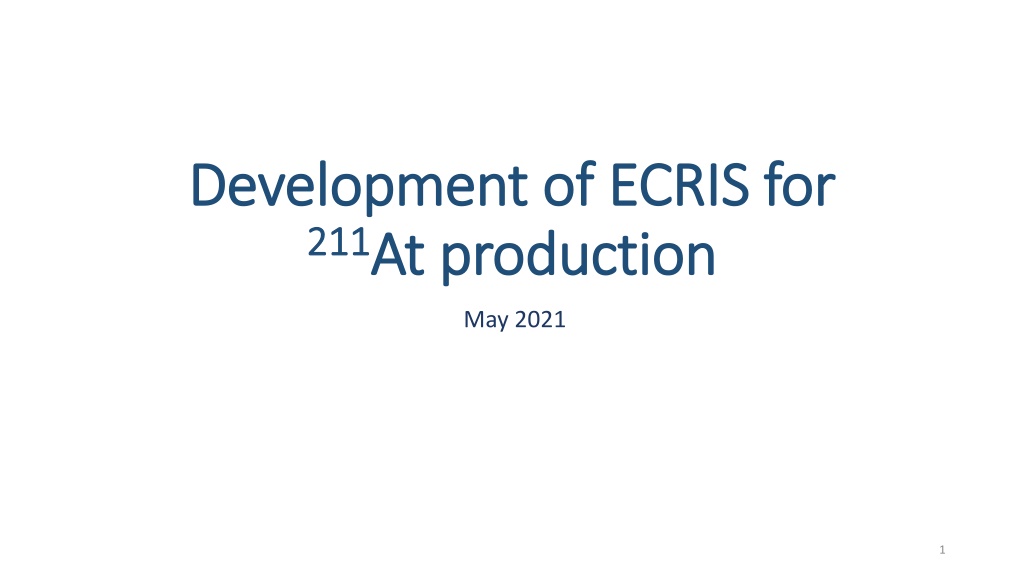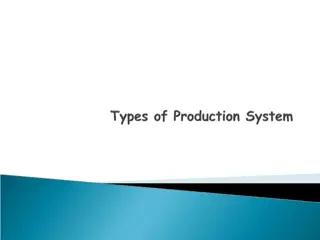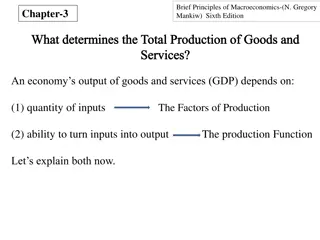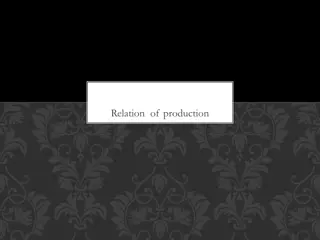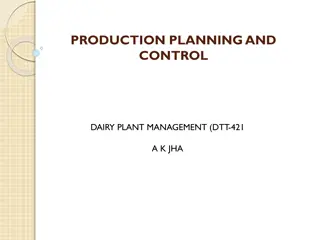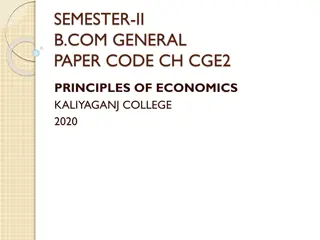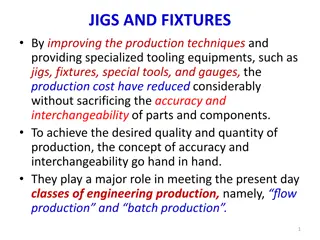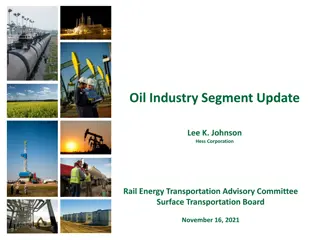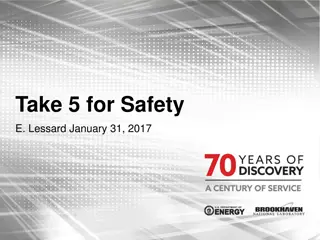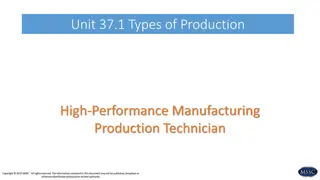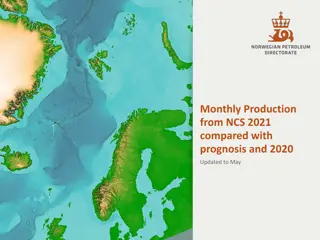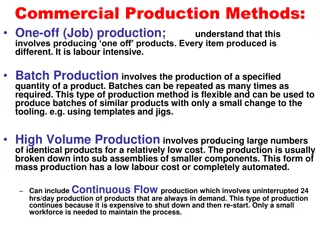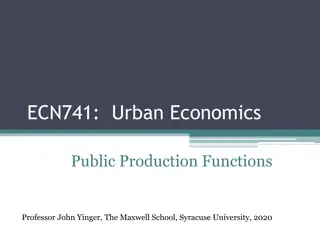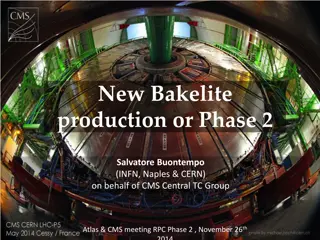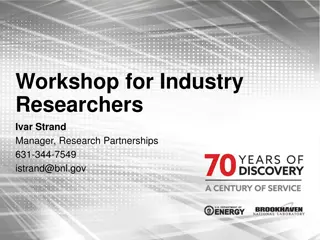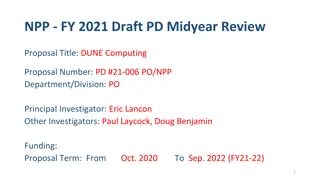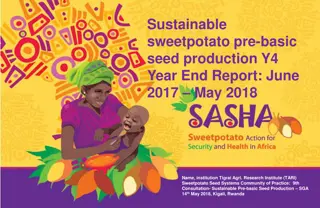Development of ECRIS for 211At Production at BNL
To modernize BNL's medical isotope production capability, this project focuses on developing an Electron Cyclotron Resonance Ion Source (ECRIS) for the production of Li3+ and He2+. The aim is to facilitate the production of 211At through innovative approaches, such as the 209Bi(7Li, 5n)211Rn method. The project targets long-term stability and high performance of the ECRIS system, with the goal of supporting future isotope facility needs. This proposal aligns with NPP's strategic plan for enhancing advanced sources and accelerators, generator systems, and nuclear data precision.
Download Presentation

Please find below an Image/Link to download the presentation.
The content on the website is provided AS IS for your information and personal use only. It may not be sold, licensed, or shared on other websites without obtaining consent from the author.If you encounter any issues during the download, it is possible that the publisher has removed the file from their server.
You are allowed to download the files provided on this website for personal or commercial use, subject to the condition that they are used lawfully. All files are the property of their respective owners.
The content on the website is provided AS IS for your information and personal use only. It may not be sold, licensed, or shared on other websites without obtaining consent from the author.
E N D
Presentation Transcript
Development of ECRIS for Development of ECRIS for 211 211At production At production May 2021 1
NPP NPP - - FY 2022 Draft LDRD Type A Presentation FY 2022 Draft LDRD Type A Presentation Proposal Title (proposal Type A): Development of ECRIS for 211At production Principal Investigator: Masahiro Okamura Department/Division: CAD Other Investigators: Sergey Kondrashev Indicate if this is a cross -directorate proposal. If yes, Identify submitting directorate; i.e., NPP ATRO - CSI Yes ___ No_X_ Proposal Term: Three years From Fy 22 To Fy 24 2
NPP NPP FY 2022 Draft LDRD Type A Presentation FY 2022 Draft LDRD Type A Presentation Project Description: To modernize BNL s medical isotope production capability, a key accelerator device is an ion source. We will develop a prototype electron cyclotron resonance ion source (ECRIS) for Li3+ and He2+ production. The primary method to produce 211At is 209Bi(4He, 2n)211At reaction, which requires an intense He beam. The notable thing is that the half-life of 211At is only 7.2 hours. This short half life makes very difficult to deliver 211At to all over the country. To overcome this difficulty, an alternative way to provide 211At is to use 209Bi(7Li, 5n)211Rn and 211Rn/211At generator. The half- life of 211Rn is 14.6 hours. The longer half-life is a key to distribute 211At to many medical facilities. We need a high power Li beam. Expected Results: We use a variable frequency TWAT microwave source with a 500 mL size plasma chamber. Then the beam performance and long-term operation stability will be examined. The accumulated knowledge and technologies will enable us to build milliampere class ECRIS for the future isotope facility in BNL. Information on how this proposal aligns with the NPP strategic long-term plan This proposal focuses on optimizing advanced novel sources and accelerators, innovative generator systems, and precise nuclear data that are needed to support the Lab s strategic vison in realizing transformative production and R&D capabilities in the DOE Isotope Program. 3
ECR condition Microwave Frequency Magnetic field Plasma temperature 2.45 GHz 875 Gauss Proton source Better emittance 10 GHz 3.6 KGauss 14 GHz 5.0 KGauss Our target 18 GHz 6.4 KGauss 28 GHz 1.0 T Superconducting Species / charge state Ionization energy Electron Cyclotron Resonance Ion Source Li3+ 122.4 eV He2+ 54.4 eV C4+ 64 eV No great Li ECRIS in the world. Lithium is a highly active material. Prototype test is indispensable. C5+ 392 eV Good samples O5+ 113 eV Ar7+ 124 eV 4
NPP FY 2022 LDRD Draft Presentation NPP FY 2022 LDRD Draft Presentation Funding Requirements. Funding Requirements. Fiscal Year FY 2022 FY 2023 FY2024 Total Funds* 450 K *Make sure appropriate M,S,T, dept. burdens and lab Overhead are included. 480K 300K One postdoc for 3 y FY 2022 Li oven (heater or laser) , sextupole magnet, solenoid magnets FY 2023 TWAT, microwave component, isolation system FY2024 Beam monitor, transport system, vacuum component 5
